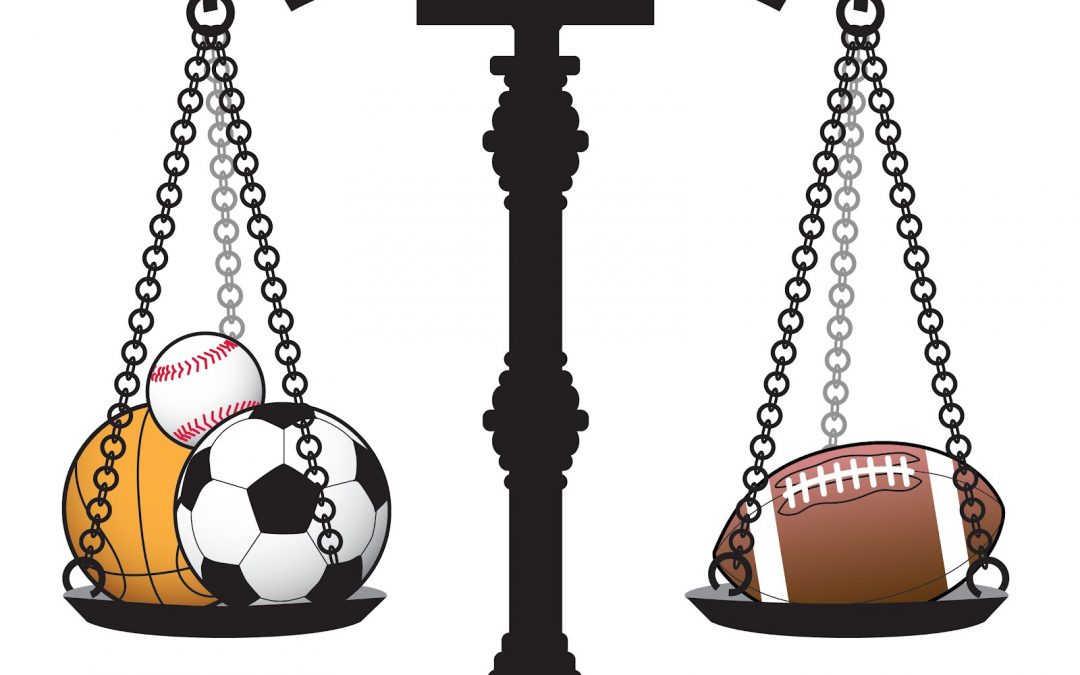
In the 2021/2022 January transfer window, Gabonese striker, Pierre-emerickAubameyang secured a move from English Premier League team, Arsenal Football Club to FC Barcelona on a free/bosman transfer. Despite the details of the move being sketchy, Arsenal Football Club reportedly paid seven million pounds to the former African footballer of the year to terminate his contract.[1]Also, Spanish giants, Football Club Barcelona have been attempting a summer overhaul with an aim to reduce the amount of players on the club’s payroll. These players are deemed surplus to requirement due to them not being considered important enough to be on the club’s wage bill as the club embarks on what seems to be a rebuild.
In light of these, it would be Important to analyze termination of footballers contract and what it entails. Can a club terminate a player’s contract unilaterally? Can a player terminate his own contract unilaterally? What happens when a player wants out of a club, and the club doesn’t want to release him? These questions and many more will be scrutinized below.
What is a contract?
Before going deep into what termination of contracts mean, it is important for the definition of contracts and its significance in football to be discussed.
According to the Cornell Law School,” a contract is an agreement between private parties creating mutual obligations enforceable by law. The basic elements required for the agreement to be a legally enforceable contract are: Mutual consent, expressed by a valid offer and acceptance, adequate consideration; capacity and legality. Contracts are promises that the law will enforce. If a promise is breached, the law provides remedies to the harmed party, often in form of monetary damages, or in limited circumstances, in the form of specific performance of the promise made”.[2]
The importance of contracts in football and sports in general cannot be overstated. It is one of the basic principles on which sports is founded. For example, when a local athlete decides to participate in a track event, likely a 100 meter sprint in return for a particular reward which might be monetary or in the form of medals. A contract has taken place between both sides as there is an offer, acceptance, consideration and legal enforceability as it is a commercial transaction. This is also applicable to football, whereby a team of agrees to participate in a competition for a reward. However, I will not be speaking on these types of contracts as they are not the focus of this paper. Top level football contracts are more multifaceted than these simple agreements. Football in recent years has become a commercially viable source of income for a lot of people: club owners, footballers, football agents, corporate bodies and brands, sportswear and kit brands and even lawyers.
The football transfer market is a global one with the English Premier League alone having a net spend of €893m in the 2021/2022 Summer transfer window.[3] These Incredible developments have also introduced a lot of intricacies in the sport and the way contracts are being signed and established in the sport. Agents and clubs have to negotiate for a lot of things, from salaries to the Image rights of a particular player.
However, when a player doesn’t find the club attractive anymore or doesn’t adapt to a club’s playing style, what does he do? What if he decides to leave a club in search of a bigger club or a new challenge? The simple way is to offer himself to clubs and hope a club deems him valuable enough to pay a transfer fee for him.
Also what happens when a club does not have need of a footballer services anymore? This leads us to the main topic of termination of contracts in football.
What is Termination of Contract?
Simply put, contract termination is the lawful ending of a contract before that contract is completed. It can be done by one of the parties for different reasons, it can also be due to a termination clause in a player’s contract, an issue concerning the payment of wages of a player, medical grounds, gross misconduct on the part of the player, criminal offenses, lack of playing time and many other reasons.
The position of the law is clear on termination of contracts between players and football clubs. The rules guiding these activities are outlined in Article 13 – 17 of the Regulations on Status and Transfer of Players (RSTP) 2016.
Article 13 of the RSTP expressly provides that:“A contract between a professional and a club may only be terminated upon expiry of the term of the contract or by mutual agreement.” [4]
This is the regular procedure for terminating a football contract, when a term ends or when the two parties (player and club) come together to end the contract mutually. However, as this is not always the case and to also protect both parties interest and rights, there are exceptions to this rules which are stated in other Articles.
Article 14 allows for the termination of a footballer’s contract provided the party that wishes to terminate the contract has a “just cause” to do so. In its words:
“1. Contract may be terminated by either party without consequences of any kind (either payment of compensation or imposition of sporting sanctions) where there is just cause.
- Any abusive conduct of a party aiming at forcing the counterparty to terminate or change the terms of the contract shall entitle the counterparty (a player or a club) to terminate the contract with just cause“[5]
The phrase “just cause” is very important as it forms the basic crux of many legal disputes and judicial battles between footballers and clubs. This phrase is classified into two main parts: “financial just cause” (nonpayment of salaries) or “sporting just cause” (appearances and playing time of players).
This is explained further in article 14:
- In the case of a club unlawfully failing to pay a player at least two monthly salaries on their due dates, the player will be deemed to have a just cause to terminate his contract, provided that he has put the debtor club in default in writing and has granted a deadline of at least 15 days for the debtor club to fully comply with its financial obligation(s). Alternative provisions in contracts existing at the time of this provision coming into force may be considered.
- For any salaries of a player which are not due on a monthly basis, the pro-rata value corresponding to two months shall be considered. Delayed payment of an amount which is equal to at least two months shall also be deemed a just cause for the player to terminate his contract, subject to him complying with the notice of termination as per paragraph 1 above.
- Collective bargaining agreements validly negotiated by employers’ and employees’ representatives at domestic level in accordance with national law may deviate from the principles stipulated in paragraphs 1 and 2 above. The terms of such an agreement shall prevail.
In summary, the article provides that a player can terminate his contract provided he is owed by the club in which he plies his trade if he is being owed for a particular amount of time depending on the basis he is being paid, either weekly or monthly. In cases whereby a player is paid weekly or based on the hours he uses at work, two months equivalent of that salary would be deemed enough as a reasonable and just grounds to terminate his contract.
This particular law been tested many times. For instance, in 2018 former Cameroonian International, Alex Song, left his former club, Rubin Kazan, after FIFA intervened and his contract terminated due to the club’s inability to pay its players’ wages. It was stated that the player was being owed 7.9 million pounds by Rubin Kazan.[6]
Also worthy of note is the case of OmoleyeTosin and Eyimnba Football Club where the footballer where the Footballer was able to terminate his contract with the club in line with Article 14 of the rules on the status and transfer of players (RSTP). His lawyer, T.C Ujah, LLD on behalf of SportHouse LP wrote:
“Under the extant laws and regulations, particularly the Regulations on the Status and Transfer of Players, the current circumstances of the treatment meted out to our Client together with the refusal and failure to pay his monthly salaries and financial entitlements (now over two months) constitute just cause for the termination of the playing contract, for which Enyimba Football club is liable.
“TAKE NOTICE, therefore, that our Client hereby formally terminates his contract with Enyimba Football Club, effective immediately.[7]
Article 15 also provides for termination of contracts due to “sporting just cause “, It explicitly states that:
An established professional who has, in the course of the season, appeared in fewer than ten per cent of the official matches in which his club has been involved may terminate his contract prematurely on the ground of sporting just cause. Due consideration shall be given to the player’s circumstances in the appraisal of such cases. The existence of sporting just cause shall be established on a case-by-case basis. In such a case, sporting sanctions shall not be imposed, though compensation may be payable. A professional may only terminate his contract on this basis in the 15 days following the last official match of the season of the club with which he is registered”.[8]
Article 15 provides players with the ability to terminate their contract for “sporting just cause” where they have played in less than 10% of their club’s fixtures in the relevant season. This allows a player to join another club without fear of the potential sporting sanctions that may be imposed upon them for a breach of contract without just cause.
The article is guided by the decision of the Court of Arbitration for Sports (CAS) in the landmark decision of O. v. FC KryliaSovetovSamara .[9]
The concept of the “established professional ” needs to be considered not only on the basis of the player’s age but also on the basis of “his sporting level as demonstrated during his career, in terms of an acceptable standard in the light of the specificity of the sport, the player’s legitimate expectations and what is expected of the player in terms of sporting performance.
The participation by a player in more or less than 10% of the official matches played by his club is calculated by reference to the number of matches in which the player played, but also according to the time he was on the field. A player cannot rely on Article 15 if he has not notified his club during the season of his dissatisfaction with the fact that he is not actively participating in the team’s games.[10]
Worthy of note is that this particular process is usually full of complications as the phrase “just cause” has to be defined in a case by case basis by FIFA Dispute Resolution Chamber (DRC) or an arbitration panel.
Also, it is important to note that a contract cannot be unilaterally terminated by one party during the course of a season. This is in accordance with Article 16 of the RSTP. Both parties have to come to a mutual agreement such as in the case of Pierre-emerickAubameyang and Arsenal Football Club.
Article 17 of the RSTP further states the consequences of terminating a player’s contract without “just cause”
“All cases, the party in breach shall pay compensation. Subject to the provisions of article 20 and Annexe 4 in relation to training compensation, and unless otherwise provided for in the contract, compensation for the breach shall be calculated with due consideration for the law of the country concerned, the specificity of sport, and any other objective criteria. These criteria shall include, in particular, the remuneration and other benefits due to the player under the existing contract and/or the new contract, the time remaining on the existing contract up to a maximum of five years, the fees and expenses paid or incurred by the former club (amortized over the term of the contract) and whether the contractual breach falls within a protected period. It then lays down a set of rules guiding the calculations contained in this particular article”[11]
In Daniel Geey“Done deal, an insider guide to football contracts, multi million pound transfers and Premier League business” hesays : “there has have been a number of cases in relation to this issue. Although perhaps not as widely known as Bosman, the cases of Andy Webster, Matuzalém and DeSanctis are examples where FIFA and CAS decided on the money paid to the player’s former club (payable jointly by the new club and the player). In the case of Webster, it was decided that only a small amount of compensation should be payable to the former club. This was calculated as £150,000, which was the remaining wages that Webster was owed by his old club. However, in the cases of Matuzalém and De Sanctis, CAS ruled that significantly more compensation should be paid to the former club. Matuzalém, and the club to which he transferred, were ordered to pay almost €12m, a sum calculated in relation to his transfer value and wages. Similarly, DeSanctis and his new club were ordered by CAS to pay €2.2m, which included taking into account the cost of finding two replacement goalkeepers.”[12]
Termination of contracts in the Nigerian scene is yet to be fully explored due to the administrative problems and epileptic nature of the League. A lot of professional footballers are cheated out of their contracts with no proper compensation. Some are kept in contracts that exploit them with many not even paying footballers salaries for months leaving the footballers to beg for what is due to them. Although there are cases in which these rules has been enforced, most times clubs get away with exploiting these players. A popular example is that of OmoleyeTosin and Eyinmba Football Club where the footballer was able to terminate his contract with the club in line with Article 14 of the Regulations on the Status and Transfer of Players (RSTP) as earlier stated.[13]
In conclusion, termination of contracts is a very important albeit risky part of the football business at it can make or mar a footballer career and also allow lengthy legal disputes which could result in heavy sanctions for defaulting players. It is therefore advisable to find solutions to avoid these issues.
 The writer, Omole Damilare Fisayo is a 200 level student of the faculty of law, AdekunleAjasin University, AkungbaAkoko, Ondo state, Nigeria. He is a sports law enthusiast. He can be reached via +2349020837174 or his email: Omoledamilare093@gmail.com.
The writer, Omole Damilare Fisayo is a 200 level student of the faculty of law, AdekunleAjasin University, AkungbaAkoko, Ondo state, Nigeria. He is a sports law enthusiast. He can be reached via +2349020837174 or his email: Omoledamilare093@gmail.com.
[1] Pierre-EmerickAubameyang: Arsenal confirm striker leaves by mutual consent ahead of Barcelona move. (2022, february 2), sky sports https://www.google.com/amp/s/www.skysports.com/amp/football/news/11670/12530228/pierre-emerick-aubameyang-arsenal-confirm-striker-leaves-by-mutual-consent-ahead-of-barcelona-move.
[2]Contract, retrieved from: https://www.law.cornell.edu/wex/contract#:~:text=A%20contract%20is%20an%20agreement,consideration%3B%20capacity%3B%20and%20legality.
[3] Premier League spending table: Arsenal finish top as Chelsea make profit (2021, September 1).
https://www.google.com/amp/s/www.footballtransfers.com/en/transfer-news/uk-premier-league/2021/08/which-premier-league-club-has-spent-most-money-2021/22/amp
[4] Regulations on Status and Transfer of Players, (RSTP), Article 13, (2022, July)
[5] Regulations on Status and Transfer of Players, (RSTP), Article 14, (2022, July)
[6]Michealseares, (2018, June 24) “Ex-Arsenal player Alex Song is owed £7.9m by Russian club Rubin Kazan who will host World Cup quarter-final”. https://www.google.com/amp/s/www.dailymail.co.uk/sport/football/article-5879549/amp/Ex-Arsenal-player-Alex-Song-owed-7-9m-Russian-club-Rubin-Kazan.html
[7]TundeEludini, (2022, February 2), Nigerian player terminates contract with Enyimba over alleged unpaid salaries https://www.premiumtimesng.com/sports/football/509294-nigerian-player-terminates-contract-with-enyimba-over-alleged-unpaid-salaries.html
[8] Regulations on Status and Transfer of players, (RSTP), Article 15, (2022, July.
[9] O. v. FC KryliaSovetov Samara, CAS 2007/A/1369.
[10] Squire Battonboggs, (2016, October, 2016), Bastian Schweinsteiger and termination for sporting just cause. https://www.sports.legal/2016/10/bastian-schweinsteiger-and-termination-for-sporting-just-cause/#:~:text=He%20has%20terminated%20his%20employment,of%20the%202016%2F2017%20season.
[11] Regulations on Status and Transfer of players, (RSTP), Article 17, (2022, July)
[12]Daniel G, (2019), done deal: An Insider’s Guide to football Contracts, multi-million pound transfers and premier league big business. Bloomsbury publishing.
[13]TundeEludini (2022, February 2), Nigerian player terminates contract with Enyimba over alleged unpaid salaries https://www.premiumtimesng.com/sports/football/509294-nigerian-player-terminates-contract-with-enyimba-over-alleged-unpaid-salaries.html

